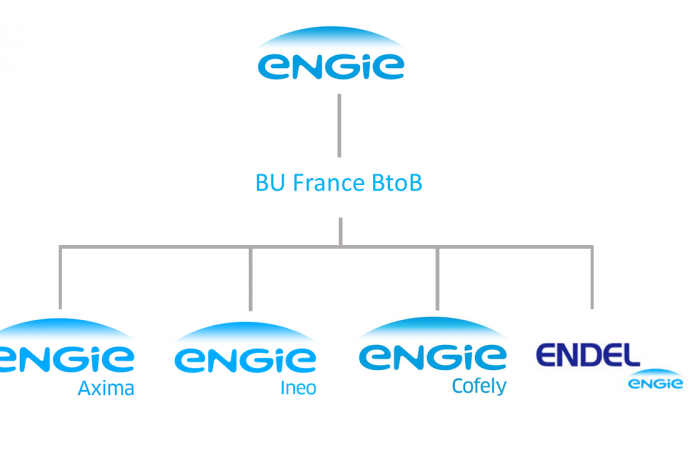Roberto Aguiló, president of the Argentinian Association of Refrigeration and Air-Conditioning (AAF - Asociación Argentina del Frío), provides insights into natural refrigerant market trends, regulations and technology in Argentina in an exclusive interview with ammonia21.com.

ammonia21.com: You have more than 30 years of expertise in the refrigeration sector. What are the main trends and technological developments you have seen over time in the Argentinian market?
Roberto Aguiló: Over the last years, technology in the refrigeration industry has been evolving and improving in all countries. The Argentinian market has followed the same global trends and has incorporated cutting edge technology in this sector whilst also maintaining traditional systems.
ammonia21.com: What is your assessment of the natural refrigerant market in South America, and in Argentina in particular?
Aguiló: Ammonia has always been a refrigerant with a strong presence in the Argentinian market as well as in other Latin America countries. Although it is has remained constant over the years, its use is very significant. The market for other natural refrigerants grows more slowly with a low number of installations across the country.
ammonia21.com: What are the main sectors of application for natural refrigerants in these countries?
Aguiló: Ammonia based technology is used in the food industry including production and distribution facilities. R744 is emerging in supermarket stores and only some domestic refrigerators are employing hydrocarbons.
ammonia21.com: What do you think is the best way to promote natural refrigerant technology in Argentina?
Aguiló: Firstly, HVAC&R technicians have to be informed and trained on natural refrigerants. We also need to have component supplies to complete these installations, and last but not least, it is key to effectively communicate with end users about their advantages.
ammonia21.com: A company’s lack of financial resources is often the main barrier for the uptake of natural refrigerant technology. Is the government offering specific incentives to promote this technology?
Aguiló: I am not aware of any government scheme or grant aid to financially support companies on costs associated with this technology. We have had grant credit from the Montreal Protocol funds to use hydrocarbons in small equipment.
ammonia21.com: Europe and North America have recently imposed regulations that ban certain f-gases such as R404a. Do you think South American countries will take a similar initiative in the coming years?
Aguiló: I don't think this will be the case in Latin America unless there is a global agreement on this issue. Looking at the local level, it is unlikely regulations will move towards any bans or restrictions on HFCs.
ammonia21.com: How large is the market for natural refrigerant-based equipment in Argentina? Do you know how many companies are working in this specific market?
Aguiló: The natural refrigerant market share is very significant if we take into consideration ammonia. If we don’t include it, the market share is still fairly limited (around 5%). Regarding the companies, there is a large number of firms using ammonia but very few working with other natural refrigerants.
ammonia21.com: Ammonia is the most commonly used natural refrigerant in Argentina. Could you tell us about your most recent projects using ammonia?
Aguiló: We are currently working on two projetcs: one is the upgrade of a distribution centre of an important supermarket chain and the other is a concentrated citrus juice fast cooling tunnel.
ammonia21.com: What are your recommendations to improve security standards at facilities working with ammonia?
Aguiló: It is necessary to establish an effective framework of rules and actions for the use of ammonia as well as strong instruments to ensure that these rules are complied with. Offering education and training for technicians is also key. Aside from some occasional seminars, the offer of training on the application of natural refrigerants is very limited.
ammonia21.com: How popular is the use of CO2 in commercial applications?
Aguiló: The use of CO2 in commercial applications is not very common, with only few supermarket stores working with this refrigerant. CO2 cascade systems are the best solution for food retailers due to the Argentinian climate conditions. Today, we have some supermarkets equipped with CO2 systems that are testing the technology but none of them have yet adopted it as a standard use.
ammonia21.com: How popular is the use of hydrocarbons in domestic refrigeration and light commercial applications?
Aguiló: There are some hydrocarbons domestic fridges but I don't know about their use in light commercial applications.
Thank you!
Roberto Aguiló: Over the last years, technology in the refrigeration industry has been evolving and improving in all countries. The Argentinian market has followed the same global trends and has incorporated cutting edge technology in this sector whilst also maintaining traditional systems.
ammonia21.com: What is your assessment of the natural refrigerant market in South America, and in Argentina in particular?
Aguiló: Ammonia has always been a refrigerant with a strong presence in the Argentinian market as well as in other Latin America countries. Although it is has remained constant over the years, its use is very significant. The market for other natural refrigerants grows more slowly with a low number of installations across the country.
ammonia21.com: What are the main sectors of application for natural refrigerants in these countries?
Aguiló: Ammonia based technology is used in the food industry including production and distribution facilities. R744 is emerging in supermarket stores and only some domestic refrigerators are employing hydrocarbons.
ammonia21.com: What do you think is the best way to promote natural refrigerant technology in Argentina?
Aguiló: Firstly, HVAC&R technicians have to be informed and trained on natural refrigerants. We also need to have component supplies to complete these installations, and last but not least, it is key to effectively communicate with end users about their advantages.
ammonia21.com: A company’s lack of financial resources is often the main barrier for the uptake of natural refrigerant technology. Is the government offering specific incentives to promote this technology?
Aguiló: I am not aware of any government scheme or grant aid to financially support companies on costs associated with this technology. We have had grant credit from the Montreal Protocol funds to use hydrocarbons in small equipment.
ammonia21.com: Europe and North America have recently imposed regulations that ban certain f-gases such as R404a. Do you think South American countries will take a similar initiative in the coming years?
Aguiló: I don't think this will be the case in Latin America unless there is a global agreement on this issue. Looking at the local level, it is unlikely regulations will move towards any bans or restrictions on HFCs.
ammonia21.com: How large is the market for natural refrigerant-based equipment in Argentina? Do you know how many companies are working in this specific market?
Aguiló: The natural refrigerant market share is very significant if we take into consideration ammonia. If we don’t include it, the market share is still fairly limited (around 5%). Regarding the companies, there is a large number of firms using ammonia but very few working with other natural refrigerants.
ammonia21.com: Ammonia is the most commonly used natural refrigerant in Argentina. Could you tell us about your most recent projects using ammonia?
Aguiló: We are currently working on two projetcs: one is the upgrade of a distribution centre of an important supermarket chain and the other is a concentrated citrus juice fast cooling tunnel.
ammonia21.com: What are your recommendations to improve security standards at facilities working with ammonia?
Aguiló: It is necessary to establish an effective framework of rules and actions for the use of ammonia as well as strong instruments to ensure that these rules are complied with. Offering education and training for technicians is also key. Aside from some occasional seminars, the offer of training on the application of natural refrigerants is very limited.
ammonia21.com: How popular is the use of CO2 in commercial applications?
Aguiló: The use of CO2 in commercial applications is not very common, with only few supermarket stores working with this refrigerant. CO2 cascade systems are the best solution for food retailers due to the Argentinian climate conditions. Today, we have some supermarkets equipped with CO2 systems that are testing the technology but none of them have yet adopted it as a standard use.
ammonia21.com: How popular is the use of hydrocarbons in domestic refrigeration and light commercial applications?
Aguiló: There are some hydrocarbons domestic fridges but I don't know about their use in light commercial applications.
Thank you!
MORE INFORMATION
Related stories



